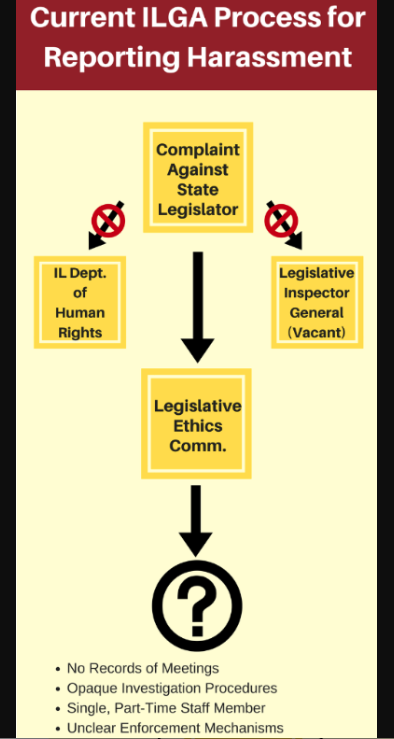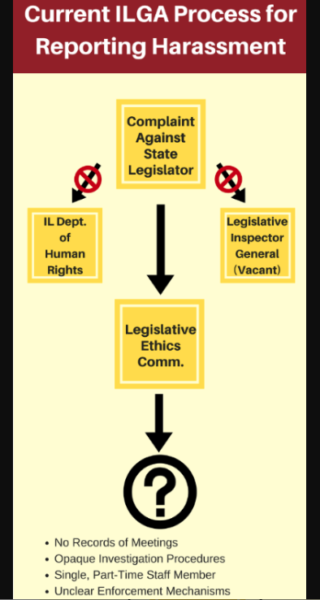| An apparent problem with the Legislative Ethics Commission is that it lacks a working, transparent process to evaluate claims. Individual commissioners are state legislators selected by General Assembly leaders. Those commissioners have appointed an executive director for the Commission, Randy Erford. However, the Illinois Comptroller lists Erford, the former director of College Illinois!, as a contractor for the state (Erford is paid $37,746 annually for part-time work). Erford is presently the only staff member for the Commission. According to a compliance report for July 2014 – June 2016, there were “procedural deficiencies” and an “inadequate segregation of duties” regarding the Commission’s financial practices. Erford’s responses to the findings ascribed the issues to “oversight or confusion over filing deadlines,” as well as the observation that he is the only staff member of the office. However, Erford also said adding an additional staff member was not a prudent option because of the lack of work in his office. Despite this, the General Assembly has appropriated $312,500 to the Legislative Ethics Commission, which also funds the (currently vacant) Legislative Inspector General’s office. Erford’s office only spent $40,000 in 2016, allowing $272,000 in funding for the Ethics Commission to be returned to the state. | 


